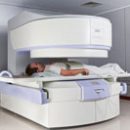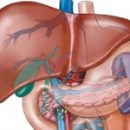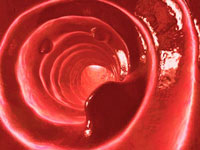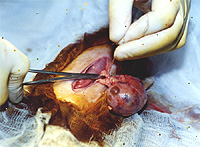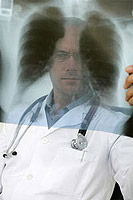During a large-scale study conducted in St. Petersburg, a model of screening examination of residents of the North-West Region of the Russian Federation was created for the identification of cervical cancer and predraul states.
Content
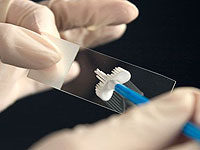 The initiator of the survey is the Cancer Prevention Fund, the research institutes of the oncology. Petrova with expert support for the world leader in the field of microbiological, cytological and molecular diagnostics of the company BD (BECTON, DICKINSON AND COMPANY). The need for a shave arose due to the fact that the North-West region of Russia is sufficiently disadvantaged from the point of view of the incidence of malignant tumors, which still remain the second (after diseases of the cardiovascular system) the main cause of death among Russians. One of the leading causes of this situation — Late diagnosis of neoplasms. Often, cancer is detected at the III-IV stage, when the situation is not possible to radically change the situation. That is why the identification of persons predisposed to the development of cancer and early diagnosis of the disease become an important direction in modern oncology. During the study, it turned out: the predisposition to the cancer is every 50th Petersburg. Of the 1000 examined women, the cervical cancer (RSM) was revealed in 2 cases; 17 people have precancerous states. Other deviations from the norm requiring medical control were discovered in 71 surveyed.
The initiator of the survey is the Cancer Prevention Fund, the research institutes of the oncology. Petrova with expert support for the world leader in the field of microbiological, cytological and molecular diagnostics of the company BD (BECTON, DICKINSON AND COMPANY). The need for a shave arose due to the fact that the North-West region of Russia is sufficiently disadvantaged from the point of view of the incidence of malignant tumors, which still remain the second (after diseases of the cardiovascular system) the main cause of death among Russians. One of the leading causes of this situation — Late diagnosis of neoplasms. Often, cancer is detected at the III-IV stage, when the situation is not possible to radically change the situation. That is why the identification of persons predisposed to the development of cancer and early diagnosis of the disease become an important direction in modern oncology. During the study, it turned out: the predisposition to the cancer is every 50th Petersburg. Of the 1000 examined women, the cervical cancer (RSM) was revealed in 2 cases; 17 people have precancerous states. Other deviations from the norm requiring medical control were discovered in 71 surveyed.
For a number of diseases, including RSM, the most effective way to identify pathology at an early stage becomes screening — Mass examination of patients from a risk group, most of which are symptoms do not manifest. In developing countries, RSM among all malignant tumors in women accounts for 15%, and in developed countries — 4%. Such a significant difference in figures is explained by the presence of screening programs in developed countries with the coverage of most of the female population, which make it possible to significantly reduce the risk of developing RSM. So, in 30 years, during which screening programs for 75-90% of the population are carried out in developed countries, the situation with the incidence of RSHM has significantly improved: mortality from RSM in Finland decreased — 50%, in Iceland — 80%.
In Russia today, pilot screening programs are just beginning to be implemented. Recently, the leadership of various regions begins to realize the importance of such programs. After all, about 7 million cytological smears of the cervical cervix takes about 7 million in the country, but the detectability of RSM in the early stages and predry states at the same time is quite low and is at about 40-60%. This is due, first of all, with the fact that in most laboratories of the country uses an outdated method of cytological research. Its main disadvantages are non-standardization of the method, the influence of the human factor at each stage of obtaining a cytolygic examination, the absence of modern laboratory equipment. Unlike the traditional cytological examination, modern computerized technology of liquid cytological research of the cervical cervicals due to the standardized technology of taking material, transportation and preparation makes it possible to improve the quality of the prepared drugs, which makes it possible to significantly increase the likelihood of early diagnosis of disease or pathological conditions. This technique recommended as a world «Gold standard» Diagnostics of the pathology of the cervix, minimizes the risk of medical error, as well as maintaining the material for 6 months, which makes it possible to re-molecular, immunocythic or genetic research without an additional visit to the doctor.
Equipment and reagents for screening in St. Petersburg were provided by BD. According to the general director of BD in Russia and the CIS countries, Elena Chirkova, «So far, by the level of scope by screening programs, Russia is at the level of developing countries. Mass surveys can be changed using modern techniques. In the Russian market, BD offers a unique diagnostic solution for surveys such, including — automatic scanner to view analyzes. Its use can significantly increase the performance of the laboratory, improve the accuracy of diagnosis and minimize the likelihood of medical error».
Commenting on the results of the action, executive director of the fund prevention of cancer oncology. Petrova Ilya Fomintsev noted the undoubted importance of such events for the city and the health system as a whole: «Early detection of cervical cancer and prejudice needed both to patients themselves and the state. In late detection, government costs for medical care are significantly increasing: the introduction of population screening makes it possible to reduce spending on health care in the region by 25-30%. Cervical cancer in this sense – unique cancer, because its screening is directed not so much on identifying the actual cancer, how much to prevent. The introduction of cancer screening and the prejudice of the cervix allows mass to prevent the disease as such. Therefore, initiating the campaign, we wanted to convey to the heads of health care that the timely diagnosis of the disease could bring not only a decrease in disability and mortality from RSM, but also a significant economic benefit in the near future after the introduction of population screening. After our research, it makes sense to talk about creating a small pilot project, where it would be possible to demonstrate all economic benefits of cervical cancer screening».
The results obtained will be presented to the head managers of the city and the region in order to develop and implement the practice of mass screening of the population for the identification of RSM and precancerous states. In the need for screening coverage, the experience of a number of regions of Russia (Rostov-on-Don, KHMAO, Moscow region), where similar programs already act and bring expected positive results. Following the action, a round table will be held with the participation of leading oncologists, members of the Association of Oncologov SFRO, where the projects of Screening RSM in the region will be discussed.

